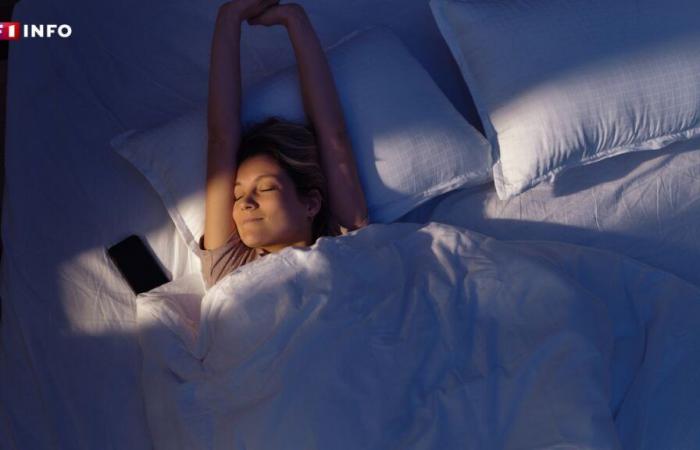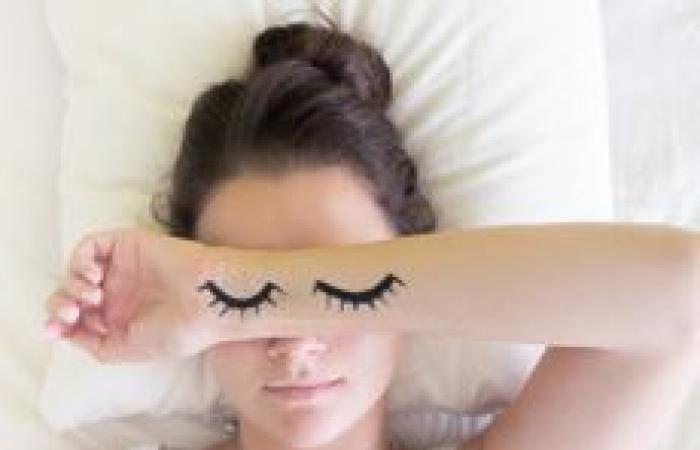Sleeping in has many fans.
But whether it is about regaining strength or catching up on sleep, this practice should be supervised.
We take stock of what science says.
Follow the full coverage
Good in his body, good in his head
The week has barely begun and some are already looking forward to the coming weekend, thinking about the long hours they will be able to spend lying in bed, stretching their sleep beyond any limits. This is evidenced by the Bretons interviewed by TF1 in the news report to be found in the video at the top of this article. “It’s great, I love it!says a woman. For me, it’s until 1 p.m. on the weekend when I went to bed late“.
But be careful: although the famous lie-in may seem comforting, even restorative, this practice is not entirely without risk.
Beware of “social jet lag”
Scientific studies devoted to the subject contradict each other on certain points, but all agree that sleep must be as regular as possible, to respect our circadian rhythm. That is to say our internal clock, which governs the major human biological functions (sleep, heart rate, blood pressure, memory, cognitive abilities, hormonal secretions, diet, etc.) by fluctuating over a 24-hour cycle, in harmony with the rotation of the Earth on itself and around the sun, as well as with the rotation of the moon around the Earth.
“Our internal clock, allowing us to respect this circadian rhythm, is located in the brain, in two tiny cerebral structures called suprachiasmatic nuclei, which are located where the two optic nerves cross”details, for Health Magazine (new window)Doctor Pascale Ogrizek, sleep doctor in Paris. In other words: it is our eyes, and therefore daylight, which establish a link between this biological clock and our natural environment.
-
Read also
Do sleeping in really help us regain strength?
Hence the need for the human body to harmonize its cycle as much as possible with that of the sun. Problem: our hectic schedules, stress, even our addictions to screens, often lead us not to respect this principle, which encourages us to compensate during the weekend, public holidays or vacations, shortened nights during our weeks of work.
A study from the University of Arizona Health Science in the United States, published in 2022, compares the impact of regular lie-ins to “social jet lag”. In fact, a gap between the natural biological rhythm and social life which would constitute, according to these scientists, an aggression, for our body, similar to that of a return trip from Paris to New York for a single weekend . Enough to increase the risk of cardiovascular disease by 11%, but also promote depression, type 2 diabetes, metabolic disorders, and even cancer, researchers estimate.
-
Read also
Does sleeping in on the weekend allow you to catch up on sleep?
“This can increase chronic disease risk, inflammatory markers, degrade the gut microbiome, and lead to adverse changes in cardiovascular risk factors. Associations between social jet lag and poor diet, adiposity, and metabolic disorders have also been widely reported”supports another study, published in August 2023 in The European Journal of Nutrition.
Rest assured: “Short weekday sleep is not a risk factor for mortality if combined with average or long weekend sleep”concludes, for its part, a study carried out by the University of Stockholm. On condition, she specifies, to limit the length of lie-ins to two additional hours of sleep compared to the waking time during the week, otherwise, again, it will disrupt your biological clock and cause insomnia, which will further accentuate fatigue. “If you are sleep deprived, it is better to take a short nap in the early afternoondecides, at the microphone of TF1, Doctor Erwan Silliau. Because if you sleep late, we see that people have more difficulty getting to sleep the same evening.”







